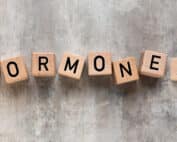
Can hypothyroidism cause depression? Studies show that there is indeed a connection between the two, your thyroid and your psychological health are often linked. If you develop a thyroid condition, it’s possible to also become depressed. If your thyroid condition leads to depression, then unfortunately that can lead to further problems with your thyroid. Which can worsen your depression. Hypothyroidism and depression go in a vicious cycle that becomes difficult to treat unless the problem is identified and addressed.
When answering the question “can hypothyroidism cause depression?” you have to consider what hypothyroidism is — an affliction where your body isn’t getting enough thyroid hormone for your brain and body to function optimally. When you put it in perspective like that, you begin to understand how hypothyroidism can affect your mood.
Can hypothyroidism cause depression, though? Research has sought to answer that question, and evidence has been found in this study that people diagnosed with depression have higher rates of hypothyroidism compared to the general population. Here is another study which shows that 38 percent of elderly patients afflicted with hypothyroidism also claimed to have depression symptoms.
If you’re asking the question “can hypothyroidism cause depression?”, you may be interested to know that Dr. Gary Ross, author of Depression & Your Thyroid, is of the opinion that anyone diagnosed with depression should also be tested for thyroid problems. Ross says that in every instance that a person is diagnosed with depression, it is best practice to also do very thorough testing for thyroid dysfunction. If the person with depression is found to also have low thyroid, then Ross says it’s critical to add a thyroid treatment procedure to the patient’s treatment plan.
Can Hypothyroidism Cause Depression? – How To Test For It
In his book, Dr. Ross helps people answer the question “can hypothyroidism cause depression?” by providing a detailed guide for determining whether or not a patient has depression that is linked to hypothyroidism. The first thing to do is assess if you have any symptoms of low thyroid. A list of symptoms are as follows:
Fatigue
Puffy face
Oversensitivity to cold
Difficulty concentrating or remembering things
Tingling or numbness in hands and legs
Hair loss
After that..
Dry skin
Weight gain
Difficulty breathing
Low blood pressure
Low body temperature
Slow pulse
Slow reflexes
Infertility or repeated miscarriages
The next step in Dr. Ross’s “can hypothyroidism cause depression?” testing and diagnosis guide is to get a physical examination by your doctor, which will involve checking things like your blood pressure, pulse, reflexes and thyroid gland. Blood pressure and pulse rate are low in people with low thyroid, reflexes are also sub-optimal. However, you can expect your thyroid gland to be normal during your first physical.
A series of blood tests will then be conducted to confirm low thyroid. Dr. Ross says that even those tests won’t tell the whole story. The tests won’t necessarily answer the question “can hypothyroidism cause depression?” because blood tests can’t show how much of the thyroid hormones is reaching your cells and turning on energy-producing biochemistry of the cells. That’s why it’s important to be aware of your physical, mental, and emotional symptoms from day to day. With the information gathered from your tests, combined with monitoring your symptoms each day, you can get complete picture and figure out if a clinical trial of thyroid medication is required.
So, can hypothyroidism cause depression? There is a connection between the two, but testing will have to be done in order to determine if that’s the case for you specifically.





She is a recognized and award-winning holistic, functional, integrative and anti-aging healthcare practitioner, speaker and author, and has been featured in ABC News, Forbes, WOR Radio and many media outlets to spread the word that you can live younger and healthier at any age.